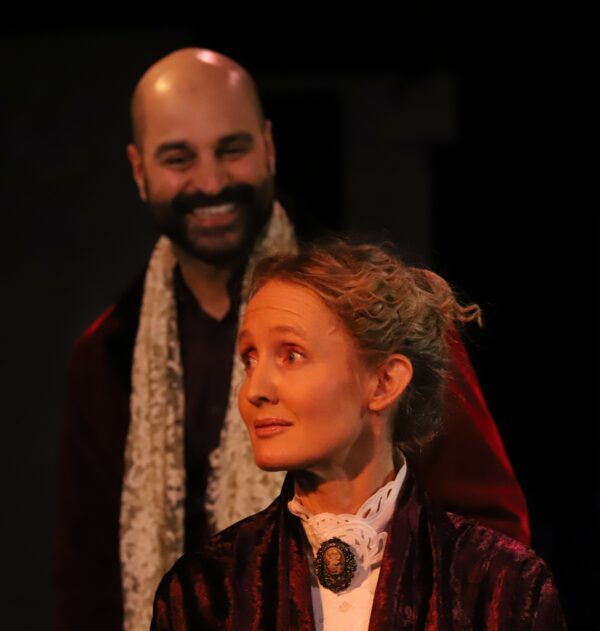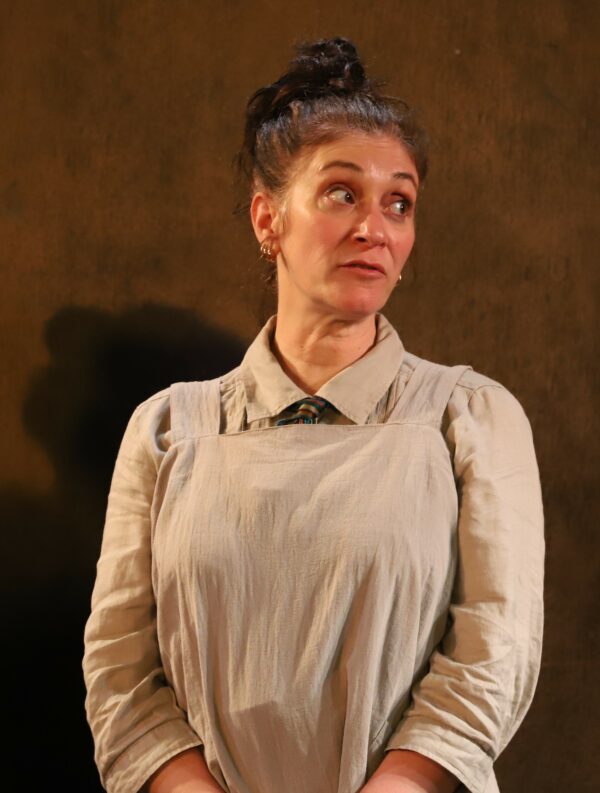Babette’s Feast Review
07.09.22
Walking into the Australian Premiere of Babette’s Feast, I was unsure of what to expect, aside from thinking that it would include…well…a feast! I walked out feeling lost for words that could capture the beauty of this production.
The seamless integration of lighting, sound, movement, acting, and impeccable transitions were at a calibre that is rare to witness in independent theatre productions. Yet that is exactly what Joining the Dots Theatre Company pulled off in their adaption of the stage play by Abigail Killeen and Rose Courtney, based on the book by Karen Blixen.

The story is set in a 19th-Century remote Norwegian village and opens with a storytelling narrative delivered by the ensemble – a common device used in Courtney’s script. Under the careful direction of Nicholas Papademetriou, the chunks of narrative do not feel dull or drawn out, but rather perfectly paced and engaging. The ensemble works superbly together to bring moments of humour and poignancy throughout the production.
The play follows the 2 daughters of the Lutheran town’s Dean – Martine (Alison Chambers) and Philippa (Rowena McNicol), throughout different stages of their life. The culmination of the piece is the arrival of French refugee Babette (Dina Gillepsie) to their town, who challenges them with her different culture, values and ways of living. The time-encompassing story demands a lot from Chambers and McNicol, requiring them to play 3 different ages throughout the play (teenagers, 40-year-olds, and 60-year-olds). Although neither are young performers, I felt that McNicol did justice to the emotional complexities experienced by young people battling feelings of love against a sense of duty to family, culture or religion. Chambers brought an incredibly endearing and relatable child-like quality and vulnerability that was a constant reminder of her desire to do the ‘right’ thing for her father.
Though Babette is the titular character, we see surprisingly little of her personal experiences. Instead, we see how her presence challenges those around her. I would have liked to see more depth in Babette, as I struggled to see the warmth she must have possessed given she was so loved by the community. At first, I was disappointed that I wasn’t let into Babette’s life and her experience as an immigrant in the town. As the play went along, however, I realised that this was possibly a choice made to increase the audience’s longing to know more about Babette and causes us to feel frustration with the sisters who did not give Babette an opportunity to share her true self with them.
An incredible strength of this adaption was the use of props, sound, stage, and lighting to represent the feelings experienced by the sisters and town members. These aspects, originally simple, grow in complexity and grandeur as the town is introduced to the new experiences that Babette brings. The stand-out of this was the feast at the end of the play, delivered in an abstract way that played on the audience’s imagination, allowing us to experience the wonder of the characters. The play could easily be clunky and drawn out due to the transitions needed (and the setup of a banquet!), yet the transitions felt like perfectly timed dances, a breathtaking performance to watch within themselves. The play includes flashbacks which occasionally left me confused, so I would have benefited from more physical reminders of time throughout the play.

Babette’s Feast presented an ironic predicament; through the sisters’ desire to honour God in the way that they had been taught by their father, they were stunted both from having a meaningful, grace-filled faith, and from expressing the love and care they longed to express. This theme is pertinent to today’s culture, and I appreciated how this play didn’t label characters as ‘good’ or ‘bad’ but showed their inner struggle, complexities, strengths, and weaknesses.
Being staged as part of the Sydney Fringe Festival, I couldn’t help but draw parallels between this piece and the experience of young artists desperate to show their work (as Babette was with her feast), and the unfortunate judgement or lack of interest that they may experience from community members who are afraid of new ideas. This play reminded me of the importance of not making assumptions about others and keeping an open mind (a timely message for the young and old), and the power of art in affecting change.
4.5 Stars.
Julia, 25, [she/her]
Joining The Dots Theatre’s Babette’s Feast plays at the Greek Theatre until the 17th of September. Buy tickets here.


